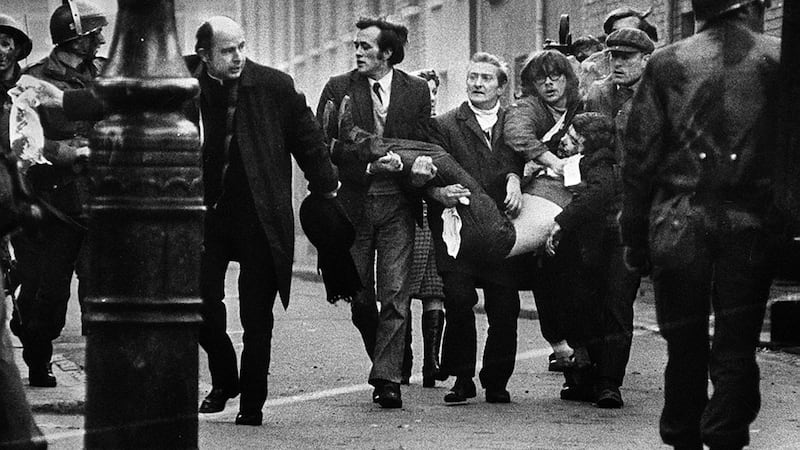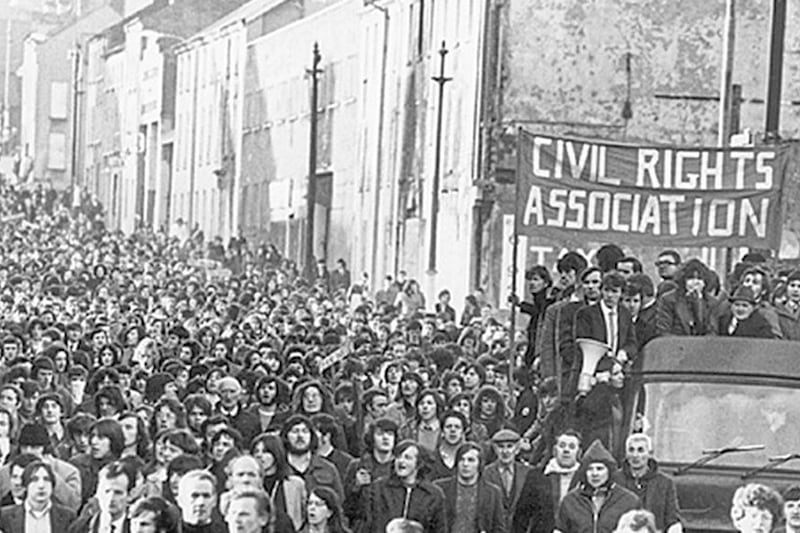"HE was bleeding badly, and I had tried to stop the blood. We were working on him, and I gave him the Last Rites. When I went back down, I just anointed everyone in sight because there were bodies all over the place and a lot of people wounded."
These are the words of Bishop Edward Daly in his final interview about the events of January 30 1972. As a priest in Derry's St Eugene's Cathedral, the then Fr Daly became the focus of world attention when images of him waving a bloodstained handkerchief as he led a group of men carrying the critically injured 17-year-old Jackie Duddy from the Bogside were shown around the globe.
Amongst those helping carry Jackie Duddy's body away from gunfire was Hugh McMonagle, whose recollection of events has never been published before.
"I have seen wars on the TV, but that gun battle on that day on Chamberlain Street scared the hell out of me. We were walking and could hear the bullets whizzing past us," he reflected.
"I shouted at a soldier to do something, and his reaction was to clap his hands. To this day, I still hear that."
Both men's accounts, together with 20 other never-before published witness accounts, are contained within On Bloody Sunday, written by Derry native Julieann Campbell.
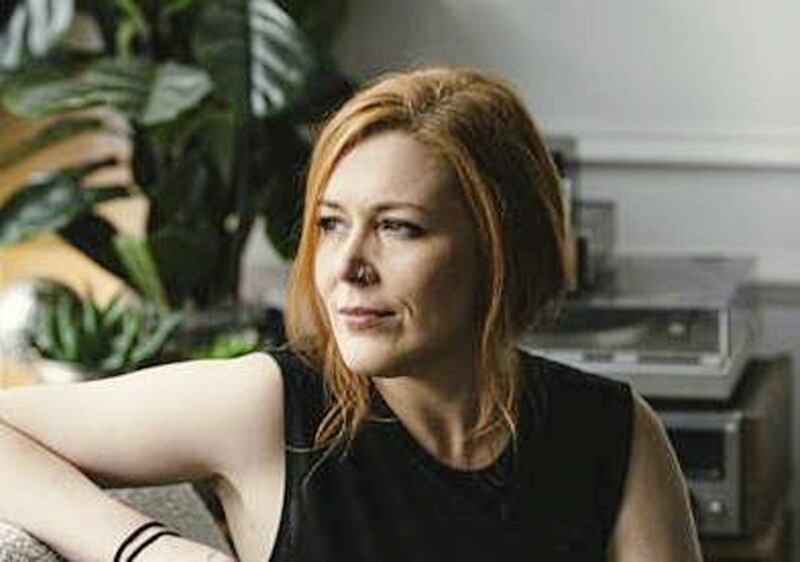
Thirteen people were shot dead when soldiers from 1st Battalion Parachute Regiment opened fire on marchers during a civil rights march in Derry. Another died later from injuries.
In 2010, the victims of Bloody Sunday were fully exonerated when Lord Saville found that
none of the casualties were posing a threat or doing anything that would justify their shooting.
While many buried the trauma of the day, Campbell, the niece of Jackie Duddy, felt the need to keep recording these interviews, and collecting rare and unpublished accounts, aware of just how precious they were.
On Bloody Sunday: A New History of the Day and its Aftermath by Those Who Were There brings together the thoughts of relatives, eyewitnesses and politicians to form this complete oral history.
"When approached to write this book, ahead of the 50th anniversary of Bloody Sunday, I knew the timing was right.
"Long overdue, perhaps, as the voices of those most affected have so often been lost in the din of 'official' accounts.
"It's also poignant timing as this may be the last chance for a lot of them to have their say. In that respect it was a huge responsibility for me," says Campbell, referring to amongst others her 75-year-old aunt Kay Duddy, a prominent figure in the Bloody Sunday justice campaign.
Campbell's deliberate choice of using multiple voices speaking directly to the reader has a profound and powerful effect, putting them in the middle of the chaos of Bloody Sunday and its continued aftermath half a century later.
Whilst the book, including its appendices of speakers, sources and list of fatalities and wounded, will serve as an enduring social history, Campbell hopes readers remember that at the heart of it "there is a human story".
"Too often things are reduced down to simple labels, like Bloody Sunday or Ballymurphy. You forget those real people behind the stories and how the communities were affected."
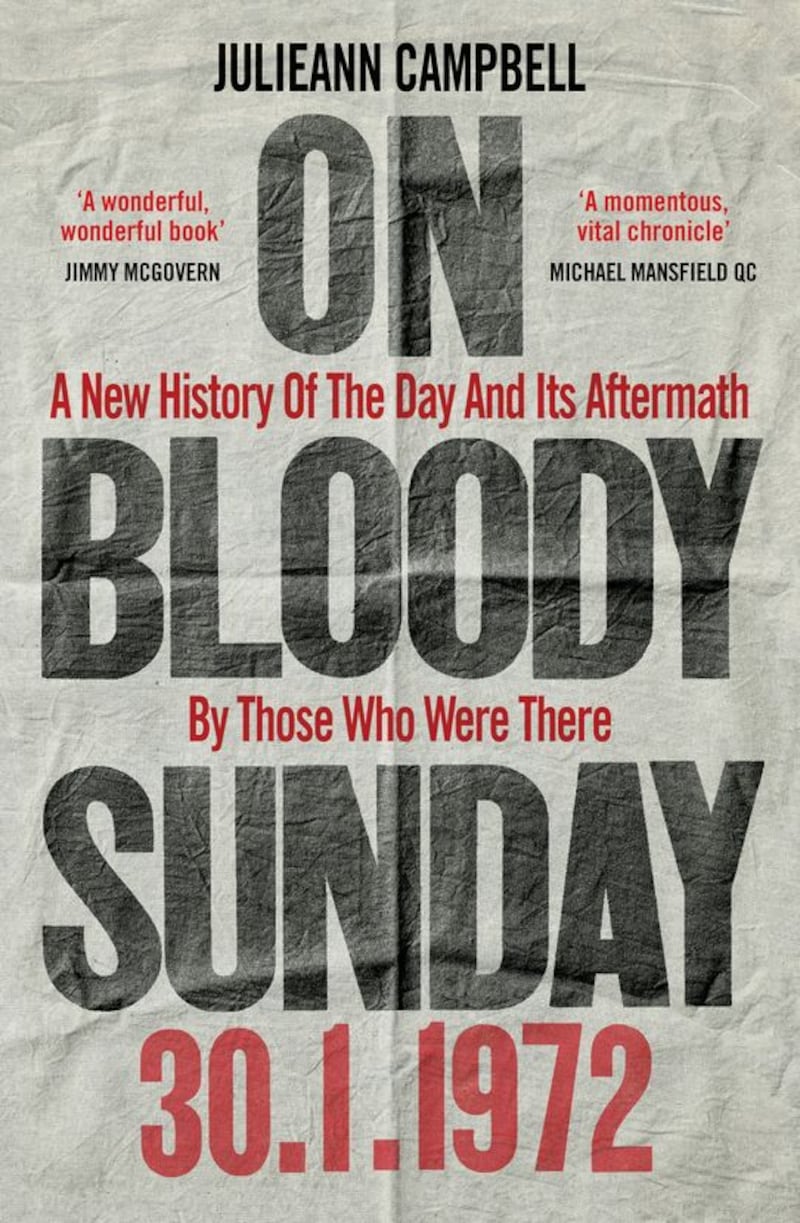
Amongst those Campbell persuaded to tell their story was her own mother, Susie, who rarely speaks of the events of that day.
She told how their family home was raided by the army on numerous occasions in the years that followed Bloody Sunday "just because I was Jackie Duddy's sister".
She also spoke about the enduring fear of giving Julieann and her siblings their freedom as teenagers: "I was always too scared to let them go on marches or to anything with big crowds. Jackie only went on a march for a bit of craic, and he never came home."
Julieann regrets never hearing her late father, Pat 'Soup' Campbell's account of the events of summer 1972.
"He was so traumatised about whatever it was he saw he wouldn't talk about it. All I know is he was hiding around Joseph Street and I would love someone to read this book and come forward and say they were with my daddy on that day."
Campbell previously worked as a reporter for the Derry Journal and is a past chair of the Bloody Sunday Trust. Her non-fiction book, Setting the Truth Free: The Inside Story of the Bloody Sunday Justice Campaign, published in 2012, won the prestigious Christopher Ewart-Biggs Memorial Prize.
Many of her interviews come from her time at the Derry Journal, as well as work on commemorations and projects with the families. Others were conducted for this new publication.
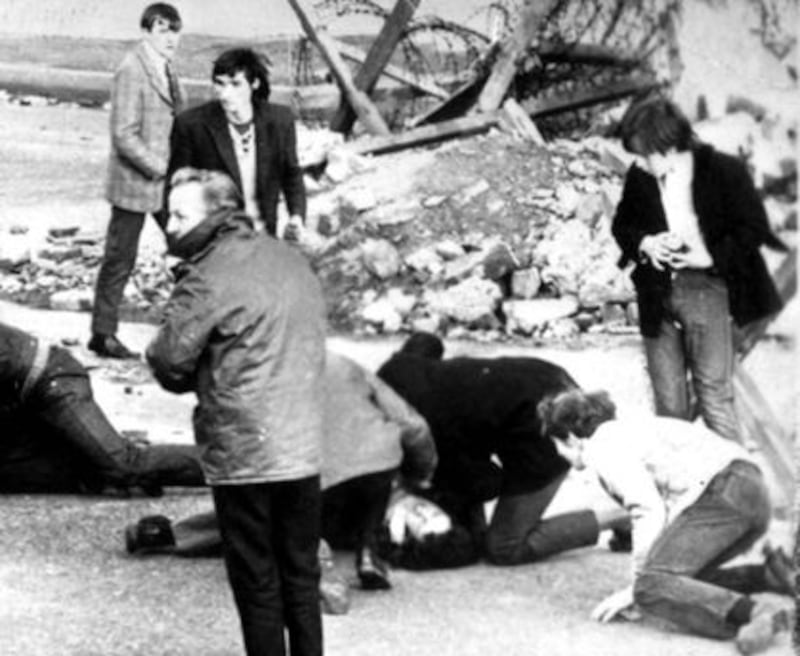
These include Maura Young, sister of 17-year-old John Young who was fatally shot, and Bridie Gallagher, sister of 20-year-old Michael McDaid, who was shot dead at the rubble barricade.
She was particularly privileged to speak at length with Bishop Daly shortly before his death in 2016.
"We spoke for nearly two hours. In that interview he said it would be the last time he would speak about Bloody Sunday and I thought how privileged I am."
Campbell was also "honoured" to speak with teenage eyewitness Geraldine McBride (then Richmond), whom the author had played in Jimmy McGovern's 2002 Channel 4 documentary-drama, Sunday.
"It's probably one of the hardest jobs I will ever do - playing a real life person who has lost so much. Actually sitting down and getting her story was really important to me personally."
Like many in the city, Geraldine's interview reflects the long-term impact of Bloody Sunday on her mental health.
"I know now that I had PTSD. Back then there was no such thing as mental health, but I was seeing things that weren't there and if there was a loud noise, I was back at Bloody Sunday and terrified. The Derry mentality is to just get on with it, keep your feelings to yourself. People were dead, so what right had we to feel bad?"
In piecing together all these accounts "like a jigsaw", what Campbell took away was the "relentlessness" and "determination" of the people of Derry.
"Everybody thought they were going to die - I can't imagine what that was like. I was always on the periphery, but in writing this book I was immersed in the terror of the moment and it was very difficult to get a night's sleep," she admits.
"Fifty years on, the real lesson of Bloody Sunday is the determination of its people. When innocents die or soldiers kill their own civilians, people should always rise and demand that the rule of law should apply," adds Campbell, who believes this will be the last book she will write about Bloody Sunday.
"Sadly justice still evades the families, but On Bloody Sunday brings everything together and ensures a genuine narrative."
Currently a PhD Researcher at Ulster University on the broader topic of alternative justice through storytelling, Campbell would like to do more writing projects based on other people's real life experience, but is also looking forward to "getting her hands dirty" and working within the community again.
On Bloody Sunday by Julieann Campbell, is published by Monoray and is out now.
